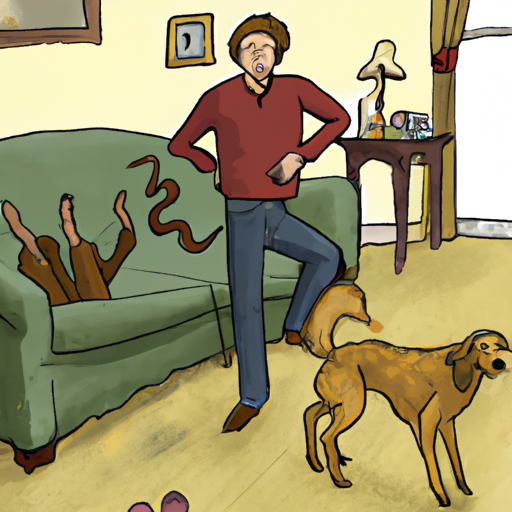Understanding Your Dog’s Behavior
Dogs communicate in numerous ways, and sometimes, those ways can be confusing. You’ve probably noticed your dog’s back leg shaking at some point. This could be a simple involuntary movement, but sometimes, it’s a sign of something more serious. As a caregiver, understanding why this happens can help you ensure your pet’s wellbeing.
Common Causes of Leg Shaking
There are various reasons why your dog’s back leg might be shaking. Here are the most common ones:
- Excitement: Dogs often shake when they’re excited or nervous. This is a normal response and nothing to worry about.
- Cold: Dogs shake when they’re cold, just like humans. If it’s chilly and your dog’s shaking, warm them up.
- Fear or Anxiety: Dogs can shake when they’re scared or anxious. This can happen during thunderstorms, fireworks, or when they’re left alone.
- Medical Conditions: Several medical conditions can cause shaking, including pain, kidney disease, or neurological disorders.
Here’s a quick table to summarize:
| Cause | Description |
|---|---|
| Excitement | Normal response to excitement or nervousness. |
| Cold | Dogs shake to warm up when they’re cold. |
| Fear/Anxiety | Common during thunderstorms, fireworks, or when the dog is left alone. |
| Medical | Could be due to pain, kidney disease, or neurological disorders. |
When to Seek Veterinary Help
You should seek veterinary help if the shaking is:
- Persistent and doesn’t stop even after you’ve tried to comfort your dog
- Accompanied by other symptoms like lethargy, loss of appetite, or changes in behavior
- Causing your dog visible discomfort
Remember, it’s always better to be safe than sorry when it comes to your dog’s health.
How to Help Your Dog at Home
Before rushing to the vet, there are some things you can do at home to help your dog. Here are a few suggestions:
- If your dog is cold, warm them up with a blanket or doggie sweater.
- If your dog is anxious, try to comfort them and remove any potential stressors.
- If your dog seems to be in pain, try to identify the source and avoid touching that area.
FAQ
Q: Can shaking be a sign of aging in dogs?
A: Yes, older dogs might shake more due to arthritis or other age-related conditions.
Q: Is shaking more common in certain breeds?
A: Some breeds are more prone to nervousness and anxiety, which can result in shaking.
Q: Should I always take my dog to the vet if they’re shaking?
A: Not necessarily, but you should always monitor the situation and seek help if the shaking persists or if other symptoms appear.
Remember, you are your dog’s best advocate. Understanding why their back leg might be shaking is the first step in ensuring they live a happy and healthy life.



